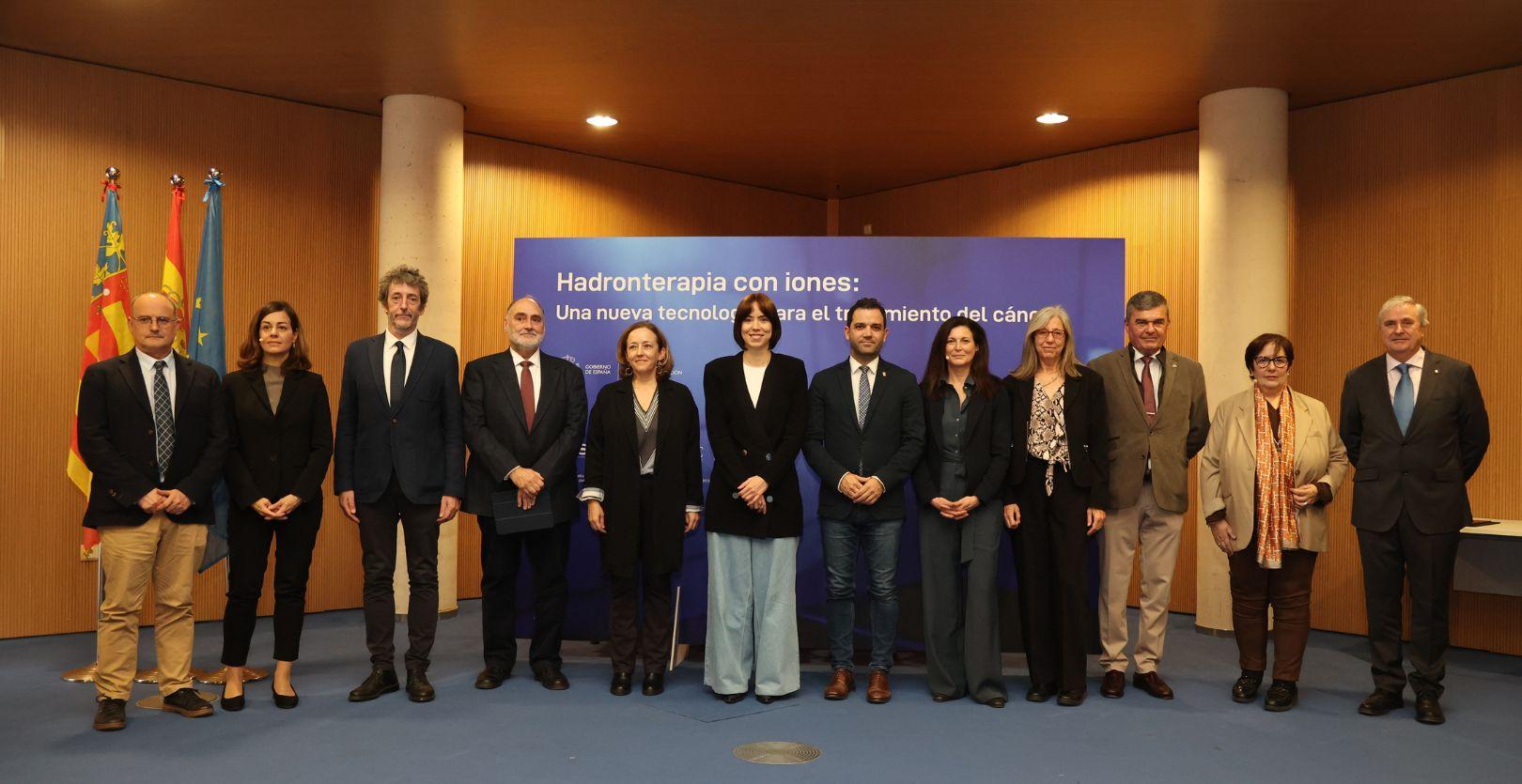
Source: Spanish Ministry of Science and Innovation News
- The Minister of Science, Innovation, and Universities, Diana Morant, closed an event on December 13 at the Corpuscular Physics Institute (IFIC) where an agreement was signed for the transfer of land from the University of Valencia (UV) to the Spanish National Research Council (CSIC). This transfer will enable the initiation of the first phase of a project to build a hadron therapy facility based on a carbon ion accelerator.
- Morant emphasized that the Government of Spain “is making the largest investment in history in research aimed at curing diseases such as cancer.”
The Minister also announced that the Government will invest €21.8 million in Spain’s first hadron therapy research infrastructure based on a carbon ion accelerator. This pioneering technology, located at the IFIC, will play a critical role in the fight against cancer.
“Very few countries in the world are researching this promising technology. Today is a special day to send a clear message to the public: we are making the largest investment in history to research diseases like cancer,” Morant declared.
This announcement was made during the event where the agreement for land transfer from the UV to the CSIC was formalized. The project’s first phase focuses on constructing a carbon ion accelerator, with the IFIC serving as the host for this groundbreaking research facility.
The proposal at IFIC, a joint center of the CSIC and UV, involves developing a linear injector accelerator for carbon ions (C6+) with an energy of at least 10 megaelectronvolts per nucleon (MeV/n). This will form the initial stage of a comprehensive carbon ion facility. Once operational, this research infrastructure will support preclinical biomedical studies and radiobiology research.
Hadron Therapy: A Promising Cancer Treatment
Hadron therapy using protons or carbon ions is emerging as one of the most effective future therapies in radiological cancer treatments. It enables precise irradiation of tumor tissues with minimal damage to healthy tissue, a critical advantage in treating pediatric cases and radio-resistant tumors.
Government Commitment to Innovative Technology
In her address, Minister Morant underlined the Government’s commitment to fostering disruptive technologies and supporting innovative enterprises, acting as an entrepreneurial state.
“Where the market does not reach, public investment steps in. That is why it is essential to value our country’s public science. Through public administration and citizens’ taxes, we are investing in future technologies that do not yet exist,” she explained.
She also highlighted that “this project is a testament to the Government of Spain’s public service mission and its conviction that there will be no progress or future without science.”
Morant praised the contributions of institutions involved in the project, including the UV, CSIC, the Center for Technological Development and Innovation (CDTI), the Center for Energy, Environmental, and Technological Research (CIEMAT), and the company Added Value Solutions S.L. (AVS).
Participants and Attendees
The roundtable discussion during the project presentation included:
- Raquel Yotti, Commissioner of the Vanguard Health PERTE (Strategic Project for Economic Recovery and Transformation),
- Carlos Ferrer, Head of Radiotherapy Oncology at the Castellón Provincial Hospital Consortium,
- Juan Fuster, Research Professor at the IFIC,
- José Manuel Pérez, Director of the CIEMAT Technology Division,
- Kauzar Saleh Contell, R&D Director at AVS,
- María Vega Gil, Director of Certification and Innovation Procurement at CDTI,
- Marta Puyol, Research Director at the Spanish Association Against Cancer.
Other attendees included:
- Paterna Mayor Juan Antonio Sagredo,
- CSIC President Eloísa del Pino,
- UV Vice Chancellor of Research Carlos Hermenegildo,
- IFIC Director Nuria Rius,
- CDTI General Director José Moisés Martín, among others.
